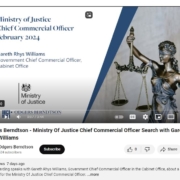Asahi Centralises Procurement – Will It Work?
Japanese brewer Asahi is setting up a new global procurement operation in Singapore, according to the Food Navigator Asia website. The target is to save $100 million a year from 2024. The new CEO of the operation is Tomas Veit, who told the publication, “the key focus is currently on creating a strong and capable team to provide efficient and effective services”.
But the bigger issue is the internal dynamics in the firm. What worries me here is this statement from Atsushi Katsuki, President and CEO, quoted in the company’s press release.
“Asahi Global Procurement is the first functional organization of the Asahi Group to be integrated globally. We view this as an initiative to elevate our management to a new level and promote the advancement of overall management. We expect the consolidation of category management and sourcing functions on a global scale to not only create group synergies, but also contribute to solving various issues in the global environment and society, leading to the promotion of sustainable procurement.”
So procurement is the “guinea pig”, the early adopter of a new corporate strategy of more centralisation. I understand why firms often see procurement in that way – it looks like an “easy” area to start the centralisation journey and show rapid savings. But any business school or CIPS course would suggest that procurement strategy must be aligned with corporate strategy. In cases like this, the corporate strategy isn’t changing, and countries or regions still have considerable autonomy. However, the procurement strategy is now mis-aligned, so it is an outlier or an experiment in effect.
That is not to say it cannot work. But Veit will have to be prepared for considerable push-back from those who hold power locally. They won’t just be concerned about losing some power to choose suppliers and make procurement decisions – they will see this as the thin end of the wedge, a wedge that could lead to much more significant power loss if procurement is successful.
There is also the supplier side to consider. Many years ago, I was trying to set up a Eruopean procurement capability for the Dun & Bradstreet Group (when it included about 10 different businesses). We spent a fortune on car hire, so that looked like a fairly easy quick win. I negotiated a great deal with Avis for all the major European countries, leveraging our spend across the continent. The senior European account director for Avis assured me she had given me the very best pricing.
After a few months, I asked our businesses if they were using the deal. No, said our Spanish operations. They weren’t. So which supplier were they using, I asked? “Oh, we’re using Avis, we just get a better deal from the local operation”, they said. That taught me a good lesson – sometimes suppliers aren’t set up to implement global or regional deals. So that’s something for Asahi to consider.
There is also an interesting dilemma for the CPO. I am sure that there is significant value that a central function can bring. That includes areas such as developing skills across the function, potential harmonisation of systems and data, support in specialist areas such as commodity price forecasting, and of course developing strategic and long-term initiatives with the most important global suppliers. It is interesting that sustainability is mentioned explicitly in the press release above; that is certainly an area where I can see some strong potential actions and benefits.
However, the new central team might struggle to show direct “savings” arising from this type of work. Because of that, there may be a temptation to look for those apparently obvious quick win, leverage-based, price-focused savings – my car rental deal, for instance. And those projects can be exactly those that will run into local opposition.
My advice to Veit therefore would be to look for a few large potential quick wins in areas that are not too contentious. Major IT contracts perhaps – some global licence deals or a major deal with a hosting service? Or areas where you are not even asking people to change suppliers. A global set of route deals with Japan Airlines maybe? Then combine that with delivering longer-term value in terms of the longer-term imperatives. Work hard to get the local or regional barons on your side (they can get you fired if you don’t). And remember that bigger deals aren’t always better deals.
But Veit does have one major advantage – several years’ experience already with the firm. That gives him a much higher chance of success than a CPO brought in from outside with what might turn out ot be a controversial mandate. We wish him luck and success.






Leave a Reply
Want to join the discussion?Feel free to contribute!